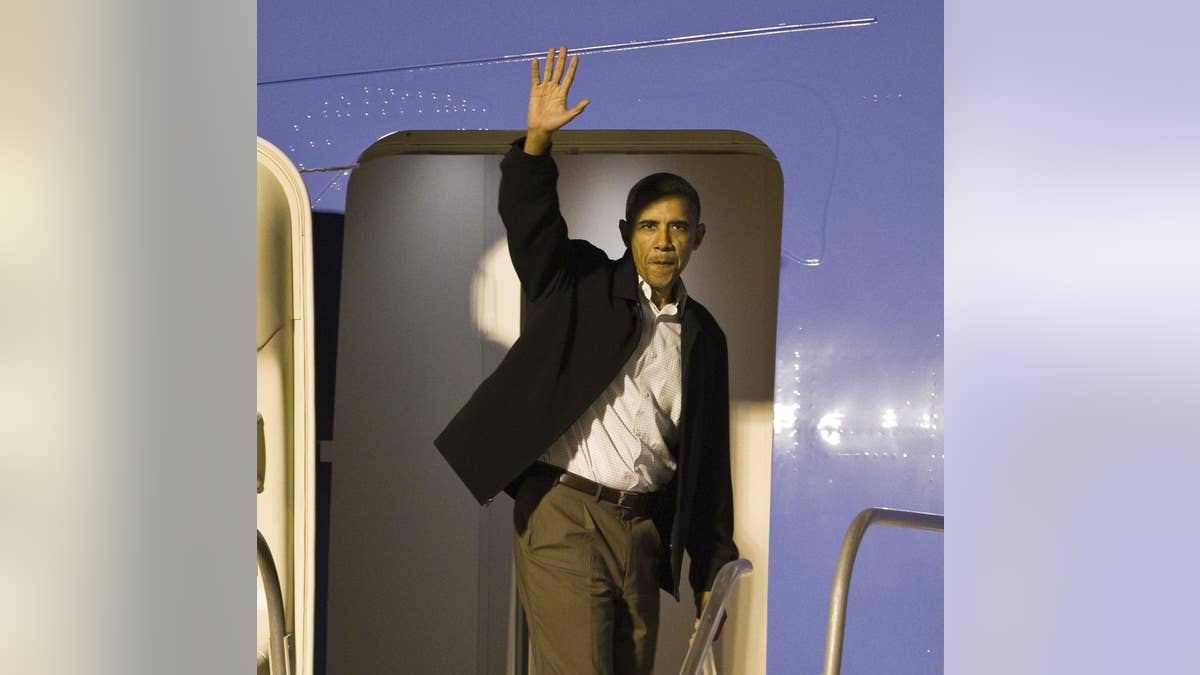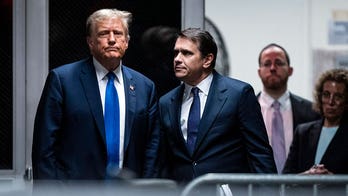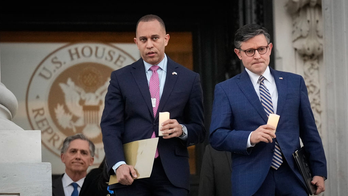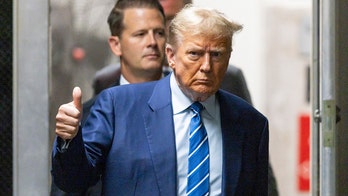
President Obama heads to Asia Friday as part of an effort to improve U.S. trade relations, but experts say the president's perceived anti-trade rhetoric has complicated the process of reaching agreements that could benefit the U.S. economy.
Following election losses which signaled the administration should have focused more closely on the economy, the president's nine-day trip features an economy-related event in each of the four countries he's to visit.
In his post election news conference Wednesday, Mr. Obama acknowledged the American public was primarily focused on one issue in the voting booth. "I think that there is no doubt that people's number one concern is the economy," the president said. "And what they were expressing great frustration about is the fact that we haven't made enough progress on the economy."
It's a frustration the president plans to address with his Asian tour.
"The primary purpose is to take a bunch of U.S. companies and open up markets so that we can sell in Asia, in some of the fastest growing markets in the world. And we can create jobs here in the United States of America," President Obama said after meeting with his cabinet Thursday.
"My hope is that we've got some specific announcements that show the connection between what we're doing overseas and what happens here at home when it comes to job growth and economic growth," he added.
One specific achievement the White House hopes to announce: a deal with India, the first stop on the trip, to purchase ten Boeing C-17s. The deal, which would include training and ground equipment, could be worth as much as $5.8 billion dollars and create jobs.
The other tangible agreement the administration is hoping for: a free trade agreement with Korea. According to a statement released by the White House, Mr. Obama spoke with South Korea's President Lee Myung-bak Tuesday and expressed his hopes in using their upcoming meeting in Seoul to solidify a deal.
"If we can reach a satisfactory agreement on the key issues for American workers, we will have a deal," the statement read.
But experts say that the Asia swing is not just meant to reassure the voting public that Mr. Obama is focused on the economy, the trip is also meant to send a message to worried Asian partners. "The big mess the president has to cope with...is the economic message," says Ernie Bower of the Center for Strategic & International Studies.
While in India, Mr. Obama is scheduled to address the U.S. India Business and Entrepreneurship Summit. He will also meet with a group of U.S. CEO's in India to "discuss the opportunities and challenges of doing business in India." Among the CEOs: David Cote of Honeywell, Jeffrey Immelt of GE, Terry McGraw of the Mcgraw Hill Companies, Jim McNerney of Boeing and Indra Nooyi of Pepsico.
In Indonesia, the president will deliver a "major speech" in which he will stress the Muslim majority country's growing role in the international economy. In Seoul, he will be joining other leaders at the G-20 Summit to discuss international economic issues such as the global financial crisis and currency revaluation. Finally, Mr. Obama will head to Japan for the 18th APEC Economic Leaders' Meeting.
"Every leader is going to grab him by lapels and ask him, ‘How is the U.S. economy and is it recovering, and when are you getting back to a leadership role on trade?'" Bower says.
Experts say the perceived weakness of the U.S. economy and fears of rising U.S. protectionism create major economic uncertainties for Asian economies that are reliant on U.S. consumers to drive exports.
Some argue the president's "misguided rhetoric" on the campaign trail didn't help matters.
"The president would be wise to drop once and for all the divisive line about shipping jobs overseas -- it doesn't do much politically or diplomatically," said Dan Griswold of the CATO Institute in Washington.
"India in some ways is a challenging stop for the president because during the campaign, he made a big fuss of tax breaks for companies that ship jobs overseas," said Griswold.
Just last month, President Obama focused on this topic in his weekly address.
"For years, our tax code has actually given billions of dollars in tax breaks that encourage companies to create jobs and profits in other countries," Mr. Obama said who then turned his criticism to the GOP. "Over the last four years alone, Republicans in the House voted 11 times to continue rewarding corporations that create jobs and profits overseas -- a policy that costs taxpayers billions of dollars every year. That doesn't make a lot sense. It doesn't make sense for American workers, American businesses, or America's economy."
Of course, the president did acknowledge in this October 16 address that, "A lot of companies that do business internationally make an important contribution to our economy here at home. That's a good thing." Nonetheless, experts say the president will have to address his own "divisive" rhetoric once in Asia.
"So the president has been on the one hand, in the heat of the campaign, demonizing that economic integration, and on the other hand, he's going to go over there and what's he going to say?" asks Griswold.
"I think what he's going to see on the ground over there will be in direct contradiction to the way he was mis-portraying things on the campaign trail," says Griswold who argues the economic success in Asia, specifically in India, is in part because the country has followed the U.S. model of doing business, and those achievements should be praised.
"Our big ace in the hole with India is the growing commercial relationship and the president should be celebrating it, not demonizing," as he did during the midterm election cycle, Griswold argues.




